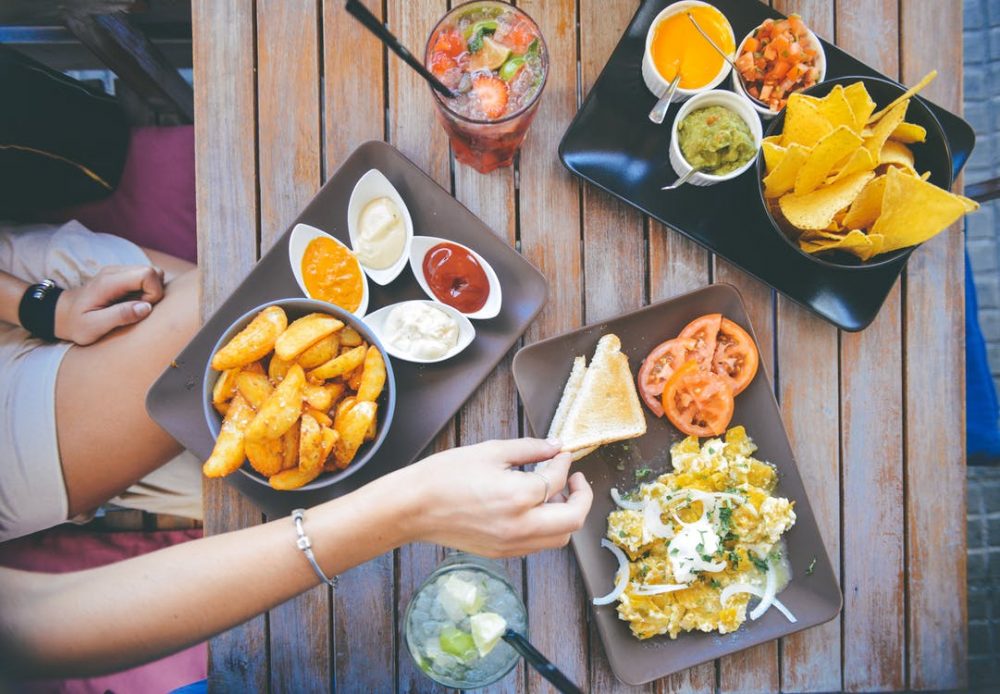Emotional eating or binge eating disorder is defined as an eating disorder “where you frequently eat large amounts of food while feeling powerless to stop and extremely distressed during or after eating. Binge eating disorder typically begins in late adolescence or early adulthood, often after a major diet.”
From HelpGuide.org:
One of the first steps to take is to recognize you may have an eating disorder, and that may well be the toughest thing in this emotional battle against food. Recognizing and appreciating food as a means of nutrition for our bodies to function well is imperative. For those who are suffering from emotional eating, mindful eating is really hard to even consider, let alone master. Food for such people is more a crutch against the crippling feeling of helplessness, invalidation, and utter removal from the world around them. Some of the key symptoms of emotional eating are:
- Eating large servings of food
- Eating in secrecy, where you feel safe, away from the prying and judging eyes of the world
- Eating without gaining any enjoyment from the food
- Eating frequently even though you may not be feeling hungry
- Eating as a means to belong to a conversation
- Eating as a means to remove yourself from a social gathering
- Eating out of guilt or a sense of feeling sorry for yourself
- Feeling stressed and resorting to eating as a way to overcome it
- Feelings of alienation and embarrassment
- Never feeling satisfied, however much you eat
- Constantly fretting about new diets to try
- Eating healthy in company but gorging on unhealthy food when alone
- Feelings of inadequacy
- Harsh self judgement
- Hiding food out of a fear of being judged
- Feeling numb when bingeing
Do you recognize any of these symptoms? Do these manifest in you once in a while? Have you ever had the feeling that you may have reached for food out of a need to correct something else in your life that was troubling you? Remember, the first step is admitting it to yourself.
Given all these, what can you do to address this and how do you work through it to come to that point of enjoying food as a means of nutrition? Here are some tried and tested ways you can begin to heal yourself and practice self love. To begin mindful eating, make a note of these, tack it on to your fridge door, and look at it every time you feel like opening the door for that tub of ice cream in it.
- Maintain a food diary: Record every single thing you eat in this diary from your first bite or cuppa in the day to your last late night snack. Also make a note of where you were around each meal time, who you were with, what kind of a situation it was in terms of stress that it caused you. Pretty soon, you will see a pattern emerge. You will have eaten the unhealthiest of foods around those times where you felt helpless or angry.
- Control your stress: Practice mindful meditation, deep breathing, relaxation yoga — all of those that we endorse here on the blog.
- Form or Join a Binge Eaters Support Group: A strong support network of family and friends is key to staying on the track of mindful eating.
- Recognise the signs: Tack another note onto your fridge of all the emotions that send you spiralling towards junk food. If any of those look back at you from the fridge, walk away. Take a walk instead, or listen to a song, or pick up the phone for a conversation with someone you love.
- Banish temptation from your fridge and pantry: Get rid of all the processed foods in your kitchen. And then stock up on only healthy foods like vegetables, fruits, nuts, etc.
- Be Kind to Yourself: Every time you do give in, and you will give in a few times while being mindful, learn from the setback and make a note to not do it again. Reward yourself for not giving in with something other than food. And if you do give in, affirm your commitment to mindful eating once again. And practice a great amount of self love.

